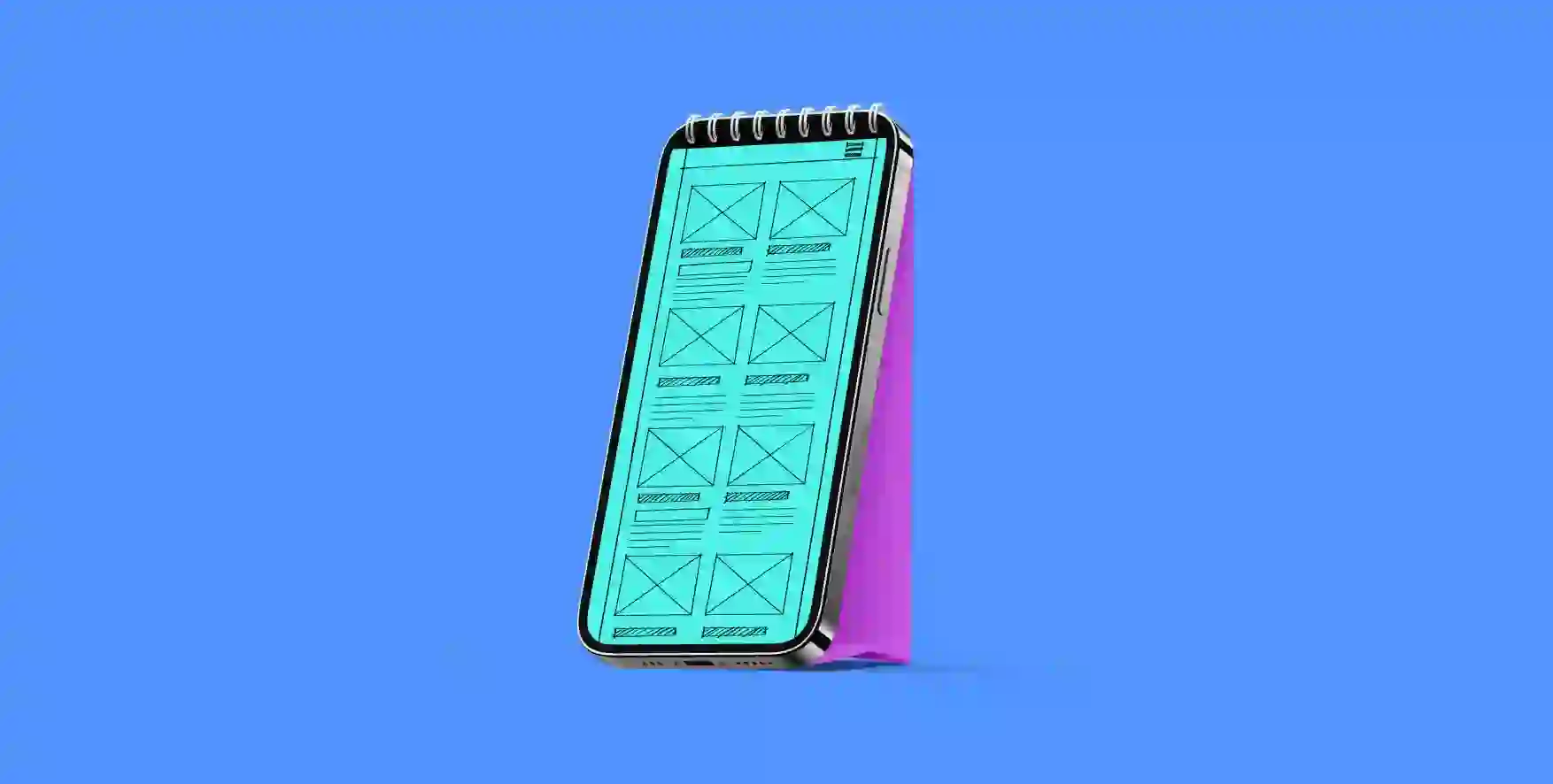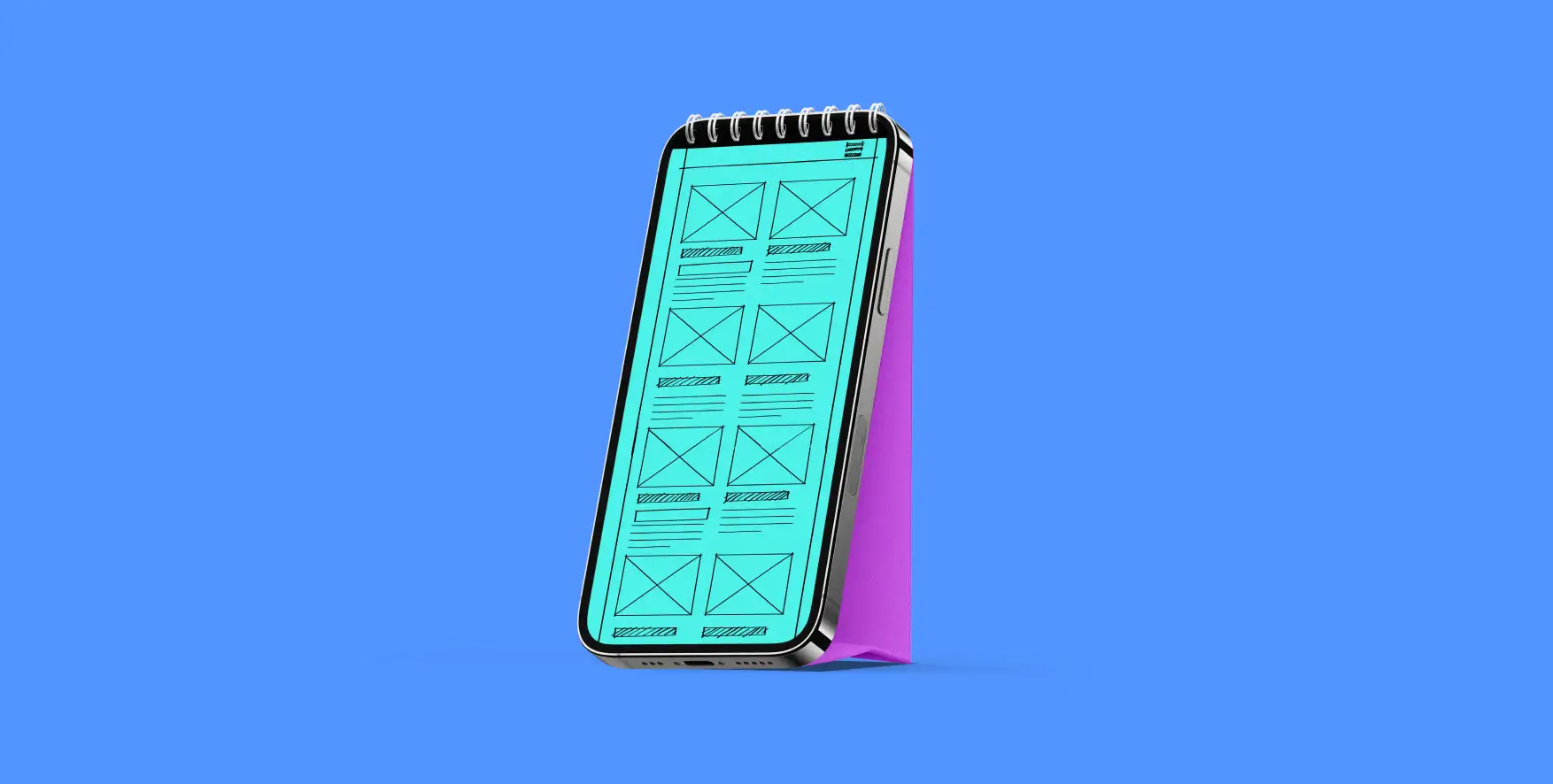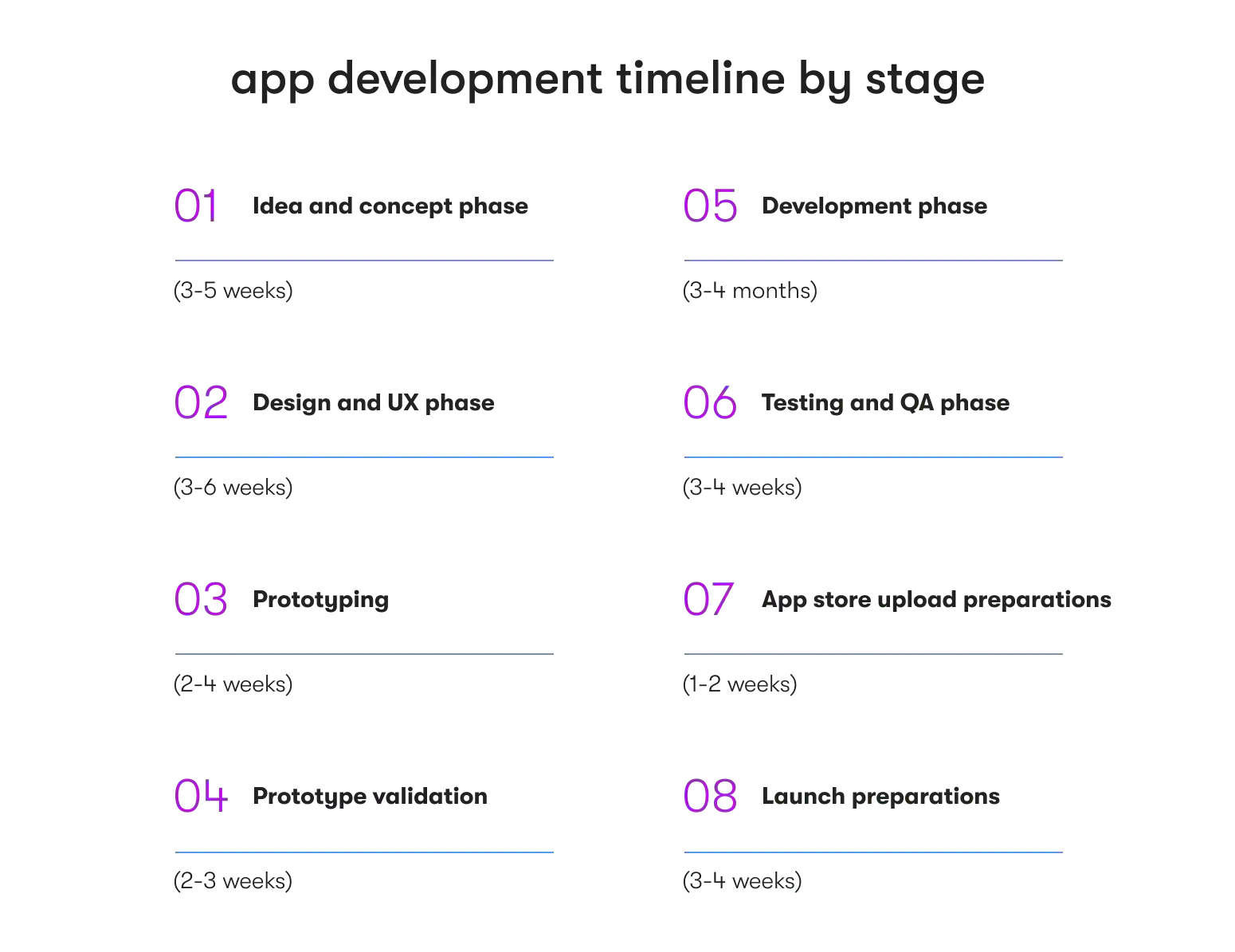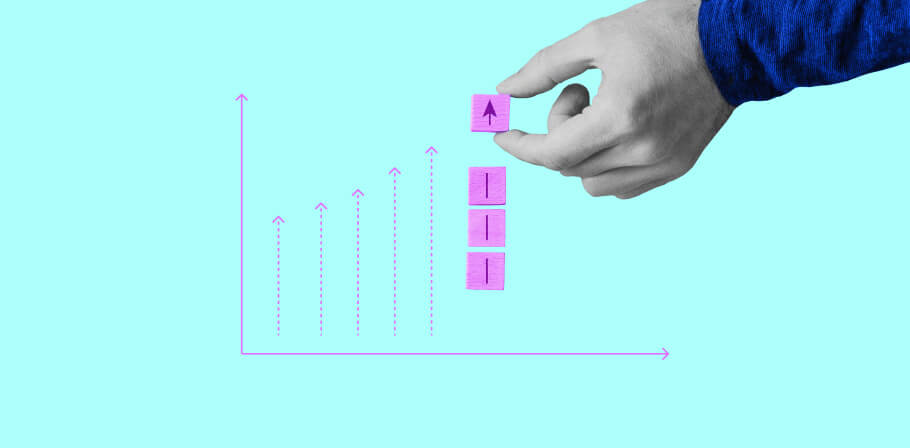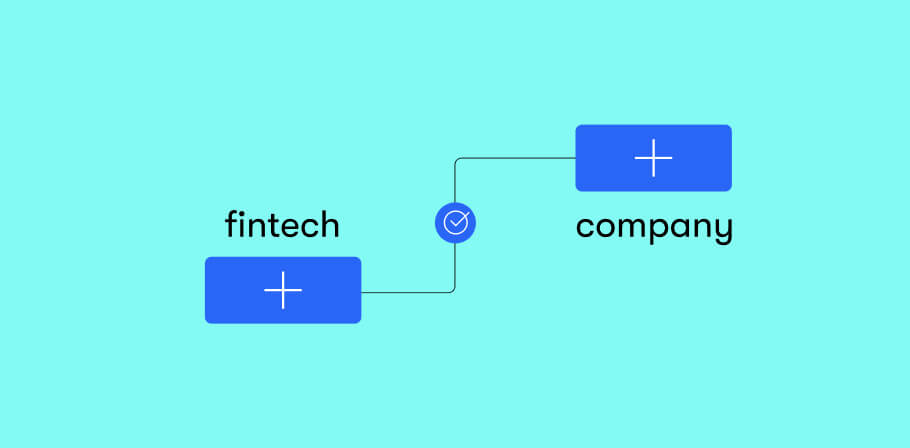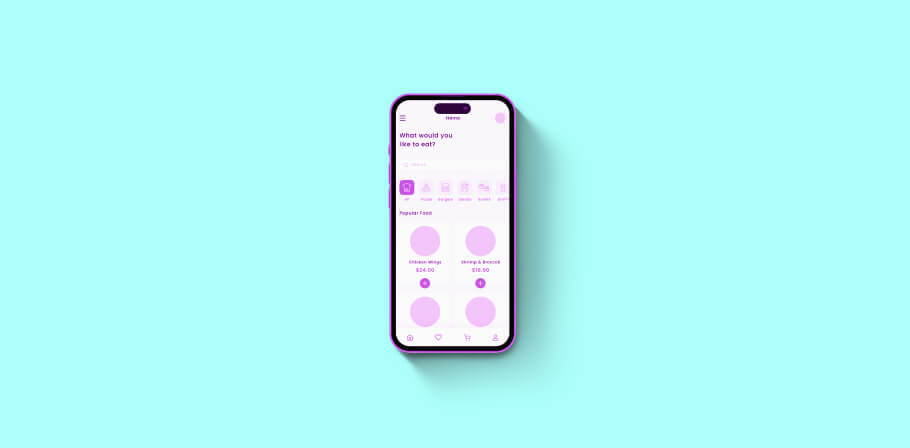Whether you're a business owner looking to launch a mobile application or an entrepreneur with a groundbreaking idea, understanding the app development timeline is vital for planning and success.
Before we dive in, it's essential to grasp that creating a mobile application is a multifaceted process influenced by many factors. Whether you're targeting the iOS or Android platform, the timeline can exhibit substantial variations. It's not merely about writing code; it's about traversing the entire development cycle, which includes everything from the initial app idea to choosing the right app development company and the final deployment in the app stores.
In this comprehensive guide, we'll delve into the intricacies of app development timelines, exploring the factors that influence them and providing examples of development timelines for different types of apps.
How long does it take to develop an app based on complexity?
The hours that it takes to develop an app are inherently tied to the app's complexity. The development process can be categorized into three main types, each with its unique characteristics and timelines:
Basic utility apps
In app development, simplicity often translates into shorter timelines. These are basic utility apps that offer straightforward functionality and minimal integration requirements. Examples include simple informational apps that serve as quick references or calculators. Typically, such apps can be developed within a matter of weeks.
Average app development time: 2-4 months
Average functionality apps
Average functionality apps, such as a shopping app or social media apps, represent the middle ground. They possess more features and complexity compared to simple apps. Consequently, developing them can take several months to a year, contingent upon the scope and requirements.
Complex functionalities like user interactions, payment processing, and backend systems contribute to a more time-consuming development process.
Average app development time: 3-12 months
Complex high-performance apps
At the zenith of app complexity are applications like real-time gaming and advanced productivity tools. The app development process includes intricate coding, sophisticated design, and demanding testing requirements. Due to these complexities, it's not uncommon for the development timeline to extend to a year or more. Real-time features, high-quality graphics, and intricate integrations contribute to the extended timeline.
Average app development time: 1+ year
Factors affecting the app development timeline
The mobile app development timeline for startups and SMBs can be a complex journey influenced by several key factors. Understanding how these elements interact is crucial to successfully launching a mobile app in today's competitive landscape.
Companies venturing into mobile app development often face the challenge of not knowing how much time to allocate to each stage. At this point, startups must decide whether to go with a native app or a cross-platform app, considering factors like user management and messaging. Many startups and small and medium business owners choose to outsource development to a mobile app development company to leverage their know-how and reduce the development timeline.
During the development stage, it's important to select the right technology stack, such as Java for mobile development or server-side frameworks for backend development. This choice can significantly impact the amount of time required to bring the app to life.
With the app's functionalities locked down, it's time to consider Apple App Store and Google Play Store guidelines for app submission. This can add a lot of time to the overall timeline, particularly with rigorous reviews and requirements.
App development cost is also a factor that cannot be ignored. It's crucial to strike a balance between budget constraints and ensuring the app features are of high quality. Overcommitting resources without careful planning can extend the timeline.
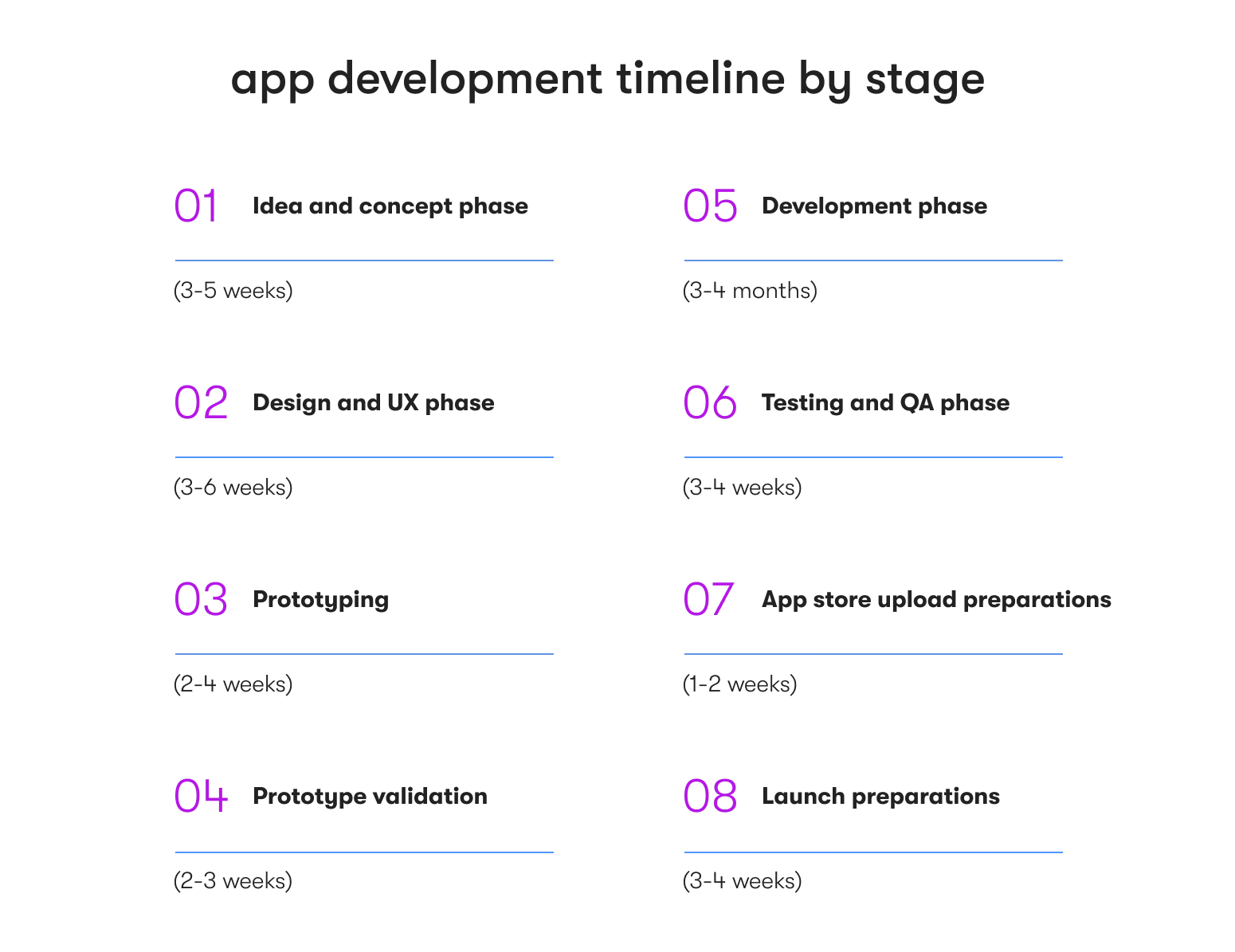
More factors affecting development and the timeline are:
Idea and requirements
The clarity and specificity of your app idea and requirements are foundational to the development process. The more detailed your vision, the smoother the development process. Ambiguities or frequent changes in requirements can lead to project delays, making it crucial to set a well-defined trajectory for your app development.
Mobile and UX/UI design
Crafting an app with an engaging user experience and an intuitive user interface is pivotal to ensuring app success. However, it's worth noting that this phase can be time-consuming, particularly for apps that prioritize aesthetics and user-friendliness. Mobile app design and UI/UX design services can be a game-changer for expedited solutions in this domain. They offer expert design and user experience solutions customized to your app's unique needs, helping you strike the right balance between functionality and appeal.
Backend development
The backend of your app serves as its backbone and is responsible for data storage, server interactions, and more. The timeline for backend development hinges on the complexity of the app's backend requirements. The development time extends when an app relies on real-time data synchronization or features like complex database structures. However, backend development services can expedite this phase, ensuring your app's core functions operate seamlessly.
Frontend development
The frontend represents the point of interaction for users, making it an integral component of app development. Building a polished frontend often entails extensive coding, meticulous testing, and iterative refinements to ensure a responsive and user-friendly interface. Frontend development services can be instrumental in expediting this phase. They assist you in creating a user interface that resonates with your target audience, expediting the journey from concept to reality.
Integrations
If your app necessitates integration with third-party services or APIs, this introduces additional complexity and, consequently, time demands. The availability of suitable APIs and the ease of integration can significantly influence the timeline. Moreover, the experience of your development team with the specific APIs plays a pivotal role in ensuring smooth and seamless integrations, ultimately expediting the process.
Testing
The testing phase in app development is an indispensable part of ensuring the quality and reliability of your app. The duration of this phase varies depending on the app's complexity and the thoroughness of testing. It encompasses many types of digital testing, ranging from functionality testing to performance testing, security assessments, and user experience evaluations. Beta testing is an essential part of the app development process, allowing for real-world user feedback. Notifications and user management features should be carefully addressed during this stage.
Rigorous testing is a crucial phase as it aids in identifying and addressing issues during development, leading to long-term savings in terms of time and resources. Consider leveraging services by professional testers for a streamlined and efficient testing process.
With these multifaceted factors at play, the timeline for app development takes on a dynamic nature, where many variables come into effect. From the clarity of your initial app idea to the complexity of your backend systems, it all plays a vital role in shaping the development timeline. The result is a well-crafted mobile app that aligns with your vision and caters efficiently to the demands of your target audience, ensuring its successful journey from concept to reality.
LAUNCH YOUR APP FASTER
Our dedicated app development team is ready to take your app to market quickly and confidently
Examples of the app development timeline
Now, let’s discover the journey of app development from concept to launch with these illustrative timelines. Creating a roadmap to calculate the average time spent on ideation, development, and design stages allows for more efficient project management, and realistic estimations and expedites the mobile app development process.
Example 1: Medical application
Developing a medical application is a meticulous process due to regulatory requirements and data security considerations. Here's a breakdown of the development timeline with estimated timeframes:
- Conceptualization of the medical app (2 weeks): Define the core features, conduct initial research, and create wireframes.
- Creating a user-centric design (4 weeks): Craft the user interfaces, conduct user testing, and select design elements.
- App development (20 weeks): Assemble the development team to build an app with frontend and backend, and integrate essential APIs.
- Comprehensive quality assurance (4 weeks): Rigorously test the app, conduct alpha and beta testing, and ensure top-quality performance.
- Deployment (2 weeks): Prepare the app for submission, ensuring compliance with regulatory standards.
- Launch and post-launch (ongoing): Consistently monitor user feedback and embark on an enduring journey of continuous improvements in healthcare technology.
Timeframe estimation: 32+ weeks
Example 2: Online shopping app
Developing an online shopping app requires an unwavering focus on user experience and ecommerce functionality, emphasizing a professional approach to crafting an efficient digital marketplace. Here's an overview of the development timeline, accompanied by estimated timeframes for each critical stage:
- Vision for seamless shopping (2 weeks): Define the app's essential functionality and conduct market research.
- Curate design (4 weeks): Need to design an app with a user interface that is intuitive for shoppers and carry out user testing
- Development phase (16 weeks): Assemble the development team, to program an app with both frontend and backend components, and do necessary integrations.
- Testing and QA phase (4 weeks): Perform thorough testing and ensure end-to-end quality assurance before deployment.
- App Store submission (2 weeks): Prepare the app for submission, meeting all regulatory and compliance requirements for the App Store and Play Store.
- Launch and post-launch (ongoing): Start to launch an app and continually gather user feedback for further enhancements of the shopping experience.
Timeframe estimation: 28+ weeks
Example 3: Food delivery application
Creating a food delivery app involves coordinating orders, deliveries, and restaurant partnerships. Here's an outline of the development timeline and life cycle along with the estimated timeframes:
- Idea and concept (2 weeks): Define core features and research the local market to make an app for food delivery unique and appealing.
- Design and UX (4 weeks): Design the user interface and create maps and user stories that are easy to navigate.
- Development (14 weeks): Assemble the development team, to task them to code an app with frontend and backend solutions, and integrate third-party services.
- Testing and QA (4 weeks): Conduct rigorous testing to ensure users face no technical difficulties browsing and ordering online.
- App store submission (2 weeks): Prepare the app for submission, adhering to legal and regulatory requirements.
- Launch and post-launch (ongoing): Launch the app, continually monitor user feedback, and plan for future enhancements and partnerships with more restaurants.
Timeframe estimation: 26+ weeks
How to speed up the time of app development
The desire to accelerate the process is common in the fast-paced app development setting. This ambition is driven by various motivations, such as the need to introduce innovative solutions to the market swiftly, outpace competitors, and cater to the ever-evolving demands of users.
Several strategic approaches are available if you're eager to expedite your mobile application's development life cycle. These strategies aim to help you spend less time on software development and enhance your app development project's overall efficiency and effectiveness.
MVP development
To get your app into the market faster, consider commencing with a Minimum Viable Product (MVP). This approach involves creating a simplified version of your app, focusing on core features. Doing so allows you to validate your idea, gather user feedback, and secure funding. MVP development is an efficient strategy to test the waters before diving into the full-scale development process.
Prototyping
Before fully developing your app, investing in prototyping can save valuable time and resources in the long run. Prototyping allows you to visualize the design and functionality of your app, making it easier to communicate your vision to the software development team and identify potential issues early on the prototype or mock-up level. It serves as a critical blueprint for your app's design and functionality.
Cross-platform development
Development for both Android and iOS platforms simultaneously can significantly reduce development time. Exploring cross-platform development options, such as leveraging frameworks like React Native or Flutter, enables you to create an app with a single codebase that operates seamlessly on multiple platforms. This approach eliminates the need to develop and maintain separate codebases for each platform, ensuring changes and updates are applied universally, thus reducing development time.
Hire a professional vendor
The expertise of your development team can make a significant difference in the speed and quality of your app. Professional developers possess the knowledge and skills to efficiently tackle software development challenges, ensuring your app is developed to the highest standards. Partnering with a professional app development team can save hours of labor and enhance the overall quality of your project. With a trusted partner, you can set KPIs and metrics to monitor the progress of your project and ensure a consistent feedback loop.
HIRE EPAM STARTUPS & SMBS TO TAKE YOUR APP TO MARKET
We’re trusted by Forbes Global 2000 clients
Agile development
Embracing Agile development methodologies can expedite the development process by emphasizing collaboration, adaptability, and the delivery of small, functional increments of your app regularly. Agile development allows you to respond swiftly to changing requirements and market conditions. It ensures your app remains relevant and competitive by delivering frequent updates and enhancements. This approach fosters a dynamic and efficient development process.
White-label solutions
To save both development hours and resources, consider leveraging white-label solutions for non-core features of your app. White-label solutions offer pre-built components or services that you can seamlessly integrate into your app. This approach significantly reduces the development effort required for common features like authentication, payment processing, or analytics. It allows you to focus on the unique aspects of your app while expediting the development of standardized functionalities.
Automated testing
The testing phase is an integral part of app development to ensure quality and reliability. Automated testing can significantly expedite this phase by enabling quicker bug detection and resolution. Automated testing tools and frameworks excel in performing repetitive tests, regression testing, and load testing more efficiently than manual methods. They help promptly identify and address issues, improving your app's quality and reliability. Explore our automation testing services for automation options to improve your app's overall quality and reliability.
ESTIMATE YOUR APP DEVELOPMENT TIME
Get in touch for a personalized project estimate
Conclusion
The timeline for app development is influenced by many factors, including the app's complexity, the chosen development strategies, and the efficiency of your development process. While there's no one-size-fits-all answer to how long it takes to develop an app, understanding the app development timeline is essential for effective planning and management.
Partnering with a professional development team can streamline the process, ensuring your app achieves its goals within your desired timeframe. Our comprehensive range of development services, including mobile app development and Android app development, can provide the expertise and support you need to turn your app vision into a reality. Whether you're entering the Android or iOS app development world, successful outcomes are within reach with the right guidance and execution.

Anush has a history of planning and executing digital communications strategies with a focus on technology partnerships, tech buying advice for small companies, and remote team collaboration insights. At EPAM Startups & SMBs, Anush works closely with subject matter experts to share first-hand expertise on making software engineering collaboration a success for all parties involved.
Anush has a history of planning and executing digital communications strategies with a focus on technology partnerships, tech buying advice for small companies, and remote team collaboration insights. At EPAM Startups & SMBs, Anush works closely with subject matter experts to share first-hand expertise on making software engineering collaboration a success for all parties involved.
Explore our Editorial Policy to learn more about our standards for content creation.
read more